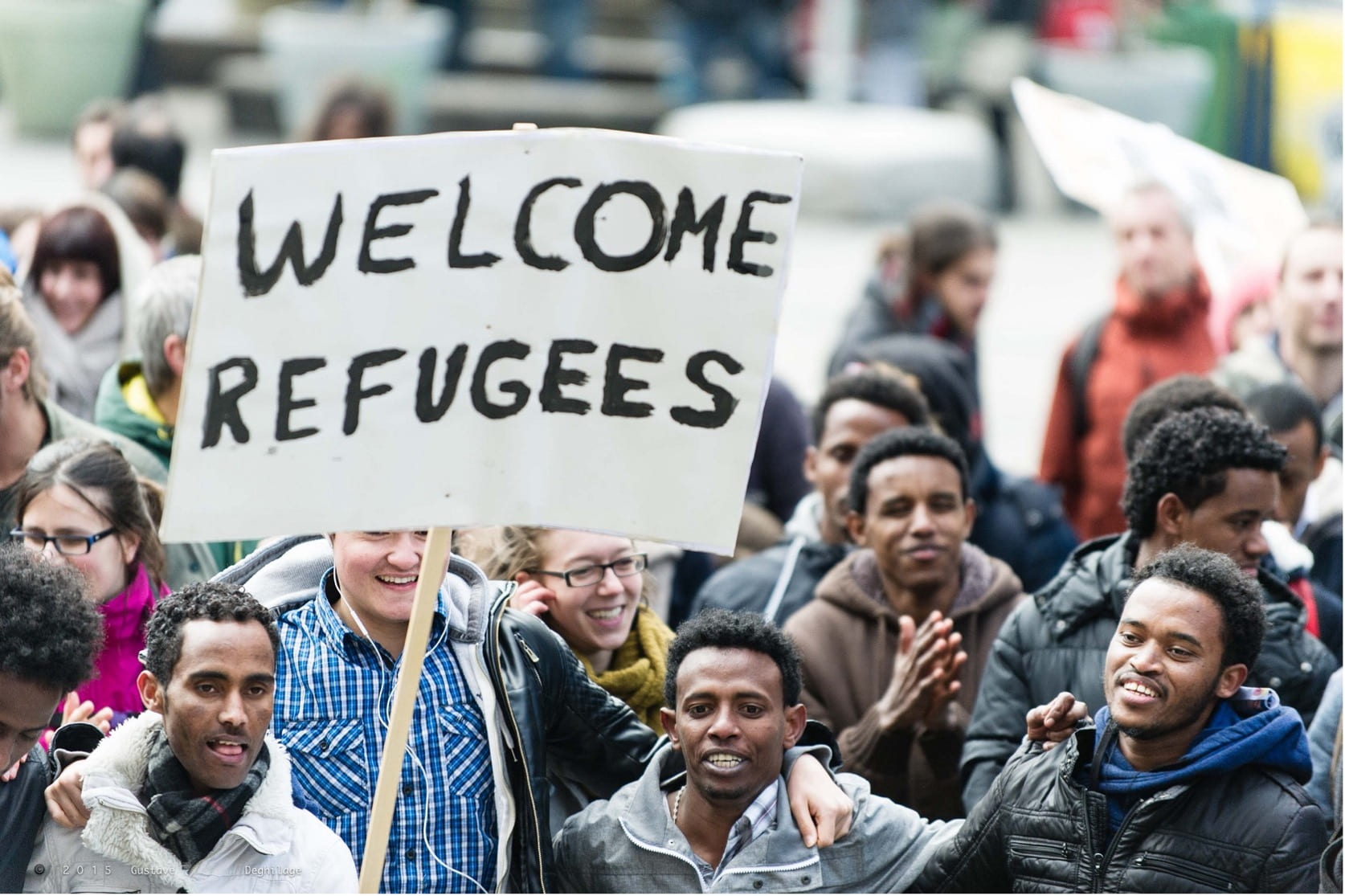The IHR and SSJR, along with Alabama Interfaith Refugee Partnership (ALIRP) co-sponsored an event on February 8, 2024, featuring Dr. Kathryn Libal, Associate Professor of Social Work & Human Rights, and the Director of the Human Rights Institute at the University of Connecticut. Dr. Libal’s research, and the topic of this talk, focus on community sponsorship of refugees and asylum seekers.
She first approached this study after observing the lack of social workers present at the center of peace work, especially those working with refugees from the Middle East. She intended to investigate the types of support systems that are in place to help refugees and asylum seekers find the necessary resources for when they arrive. Before presenting her research, Dr. Libal explored the authority the President holds to propose the number of refugees who can be settled into the country each year, and the move to privatize refugee resettlement, expecting community organizations to bridge the gap created by the government. For this to work, Dr. Libal insisted that there has to be a strong social safety net, one which the United States does not have.
Dr. Libal’s study conducted 55 interviews (and 6 follow-ups) of volunteers at community sponsored organizations in an attempt to understand why volunteers donate their time and efforts to this work of resettling refugees. Some of the things she found in the process were fascinating. A common theme among these organizations helping refugees settle were faith-based alliances stepping up to address this gap. Many volunteers simply acted out of good will and were motivated by the proximity to the issue of immigration in their own lives. Dr. Libal’s study also highlighted some problems these organizations were facing, including how some volunteer groups held stereotypes or preconceived notions about the refugee groups they were interacting with, and the lack of trained professionals in these organizations. She also highlighted how the refugees, at times, felt hesitant to voice their opinions and concerns due to the risk of appearing ungrateful. Regardless of these issues, these community organizations created space for cultural context and exchange between the volunteers and refugees where volunteers were able to use their economic and social privilege to help people settle in a foreign world. In these interviews she conducted, Dr. Libal discerned that those who volunteered in these organizations did so as a form of humanitarian work rather than politically motivated action. To address the next phase of her project, Dr. Libal addressed the deep concerns she has of the upcoming election and how that will impact the human rights obligations America has toward refugees, asserting that the chances of claiming asylum will become much more difficult and dangerous.


Published by